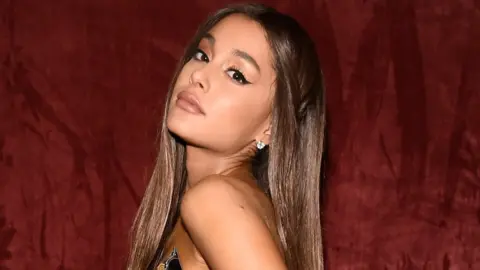How subscription is replacing ownership
 Getty Images
Getty ImagesOwning your film and music collection is becoming a thing of the past.
More money was spent on subscription services like Spotify and Netflix last year than on physical DVDs and CDs, according to new figures from the Entertainment Retailers Association.
In music, subscription now accounts for 62% of total revenues; while video on demand has a 55% market share.
Video games show a similar trend, with online subscriptions generating more than downloads and disc sales.
"New digital services have created a 'Generation Rent' for whom access models seem natural," said ERA CEO Kim Bayley.
 Getty Images
Getty Images"It is nothing less than a revolution in the entertainment business."
Many people just don't have the room for piles of DVDs and CDS - the decline in ownership of such items comes at the same time as house sizes are shrinking across the UK.
Living rooms in newly built homes are nearly a third smaller than equivalents from the 1970s, researchers found last year.
Younger generations are also less concerned about owning music and films, preferring instead to curate their collections online.
According to the ERA, subscription services first outpaced physical media in the games market - thanks to the money generated by titles like World of Warcraft, and services like XBox Live and Playstation Plus, which require players to pay a monthly fee to access the online multiplayer components of their games.
Video on demand followed suit in 2017; and music finally matched the trend last year, thanks in part to voice-activated speakers like Amazon's Echo.
The internet now accounts for 85% of entertainment revenues, said the ERA, adding that entertainment revenues grew for the sixth consecutive year in 2018 to an all-time high of £7.5bn.

Follow us on Facebook, on Twitter @BBCNewsEnts, or on Instagram at bbcnewsents. If you have a story suggestion email entertainment.news@bbc.co.uk.

